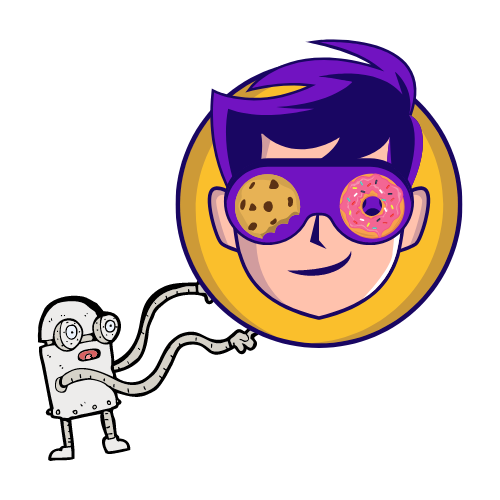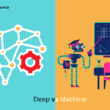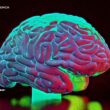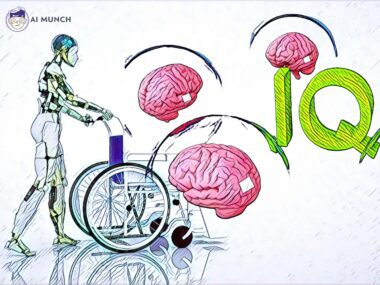I. Introduction
Is artificial intelligence influencing the future of humans? How is AI changing human society? AI will take over the world. The age of AI and our human future. These four are probably the most searched terms on the internet. The pace at which AI changes our daily lives and workplaces is extraordinary. AI is being incorporated into practically every area, from healthcare to banking to transportation, thanks to machine learning, natural language processing, and computer vision developments. Humanity’s survival is linked to AI research and implementation success. It influences how people use technology, how businesses function, and what choices people make. However, it is crucial that we consider the possible effects of these developments as AI becomes increasingly embedded in our lives. The goal of this article is to look at how artificial intelligence (AI) is changing the course of human history in different fields.
II. Impact of AI on Society
A. Economic impact
Job displacement:
This is the main thing when we talk about artificial intelligence and the future of humans. Artificial intelligence can automate many tasks humans currently perform. As machines grow more productive and cheaper at completing specific jobs, this may result in job displacement. It’s important to remember that AI isn’t only a threat to the existing job market. It also can generate new ones in fields like data analysis and machine learning and alter the very nature of those jobs in fundamental ways that call for different sets of expertise.
Productivity gains:
AI has the potential to improve productivity by automating menial jobs, freeing up workers’ time to focus on more strategic and imaginative endeavors. Business profits and efficiencies may increase as a result. Furthermore, AI may aid organizations in decision-making by evaluating data and delivering insights humans miss.
B. Social Impact
Changes in communication and social interactions:
Chatbots, virtual assistants, and other AI-powered forms of communication have the potential to alter how we engage with one another and with machines. Virtual assistants powered by artificial intelligence can aid users in maintaining a tidy and manageable schedule. Fears have been raised, however, concerning the potential for AI to compromise individuals’ sense of independence and privacy.
Ethical considerations:
Artificial intelligence and the future of humans depend on how we use this tech. Many moral questions arise when AI spreads worldwide. Concerns about using AI in sensitive areas like healthcare and criminal justice, as well as bias, accountability, and transparency in AI decision-making, need to be carefully looked into.
C. Political impact
Changes in decision-making:
Artificial intelligence (AI) has the potential to revolutionize the decision-making process in public administration and politics. Decision-making systems powered by artificial intelligence can aid policymakers in making more informed choices by analyzing data and delivering insights that people would miss. However, some concerns have been voiced about the prospect that AI may be used to manipulate public opinion or undermine democratic processes.
Impact on national security:
In the future, AI could change how governments protect their people and look out for their own best interests. Systematically evaluating data and drawing conclusions humans might miss can help the military make better judgments. Fears have been raised, however, concerning using AI in potentially harmful ways, such as launching cyberattacks or creating autonomous weaponry. When building their military power, countries should consider how artificial intelligence could affect national security.
I think a lot of people look into the case that AI will definitely kill us, find it’s not airtight, and end up believing something like”AI is 10% likely to kill us” but not treating that like it’s itself an enormously big deal that would if true need to be society’s top priority.
— Kelsey Piper (@KelseyTuoc) January 31, 2023
III. Advancements in AI and Future of Humans
A. Natural Language Processing:
Natural Language Processing (often abbreviated as NLP) is a subfield of Artificial Intelligence that investigates how language functions in the context of interactions between humans and computers. Language processing (NLP) technologies encompass various applications, from speech recognition to natural language processing and synthesis. Numerous services, from virtual helpers to chatbots to fully automated support systems, use these technologies in various forms. Sentiment analysis, translation, and summarization are just a few more examples of the many applications of natural language processing.
B. Computer Vision:
AI subfield is concerned with teaching computers to recognize and process visual data like photos and movies. Image analysis, object recognition, and even original image creation are examples of today’s computer vision technologies. Self-driving cars, security systems, and medical imaging are just a few fields that benefit from this technology.
C. Robotics:
The study of robotics, focuses on creating, programming, and using mechanical devices. Robotics engineering encompasses fields such as computer science and artificial intelligence. The manufacturing, medical, and transportation industries are just a few of the numerous fields that put robots to work.
D. Machine Learning:
Machine Learning is a subfield of artificial intelligence that focuses on enabling machines to acquire new skills and knowledge through exposure to new data and contexts without being expressly programmed to do so. Examples of machine learning technology are supervised, unsupervised, and reinforcement learning. Image recognition, NLP, and predictive modeling are just some of the many uses for these technologies.
In this post on artificial intelligence and the future of humans, we looked at various forms of development. These AI developments are causing significant change and innovation across various sectors. They make it possible for computers to understand spoken language, recognize images and objects, make predictions, and make decisions that were once considered uniquely human. As these technologies improve, our everyday lives and places of work will change in much more significant ways.
IV. The future of AI and humans
Improved healthcare:
Artificial intelligence (AI) has the potential to dramatically alter the healthcare system by facilitating more accurate diagnoses, the discovery of effective novel treatments, and better health outcomes. Medical imaging analysis, patient data processing, and detecting patterns that humans might overlook are all within the reach of AI-driven systems. This can lead to more precise diagnoses, targeted therapies, and better final results for patients.
Increased efficiency:
AI can boost productivity in many areas by automating routine tasks, sorting through huge amounts of data, and making educated guesses and decisions. As a result, you can cut costs, increase productivity, and provide superior customer service.
Potential for the negative impact
Loss of privacy:
One significant privacy risk is the exponential growth of AI. AI-driven systems can collect, store, and analyse large volumes of sensitive personal data to make inferences and judgments about individuals. Loss of individual freedom and privacy may result from this.
Unintended consequences:
The potential downsides of using AI are becoming harder to foresee as AI technology advances. Unintended consequences may arise due to society’s inability to keep up with the rapid rate of technological advancement. Cyberattacks might be launched using autonomous weaponry, and AI-driven systems could be used to change public opinion.
The need for responsible development and regulation:
We must evaluate the implications of AI’s rising amount in our culture. Ensuring AI is utilized safely, ethically, and helpful for society requires responsible development and regulation. Considering AI’s ethical and legal implications in sensitive fields is essential. These fields are, for example, medicine and law enforcement, to ensure that AI-powered systems are trustworthy and fair.
“I think in the long run our relationship to capital, labour, work, and what work is, are going to change drastically because of all of AI’s impacts on society.” #BasicIncome
— Basic Income Canada (@basicincomecdn) January 29, 2023
🗨️Yoshua Bengio pic.twitter.com/nNNgCUpLoj
V. Conclusion AI and Human
A. Summary of key points:
There is so much to discuss when we talk about AI and human. In this post, we looked at how AI is changing our world and what that could mean for our species in the long run. We have looked at AI’s possible beneficial and harmful implications on society and its economic, social, and political impacts. As we make our way through this fast-developing topic, we have also covered the importance of ethical AI research and development under strict oversight.
B. Call to action for responsible development and use of AI:
Artificial intelligence and the future of humans depend on how we react. We must weigh the impacts of AI’s growing popularity in our culture. We need to make an effort to ensure that AI is developed and used in safe, ethical, and helpful ways. It’s essential to consider the ethical and legal implications of using AI in sensitive fields like medicine and law enforcement to ensure that AI-powered systems are trustworthy and fair. Cooperation between individuals, groups, and governments is essential to ensure AI’s honest creation and application. That means discussing the future of AI and its effects on society openly and honestly, funding research and development, and supporting education and training programs.
FAQs
AI impacts society in several ways, including economically, socially, and politically. On the economic front, AI has the potential to both displace jobs and create new opportunities. AI is changing how we interact with each other and technology, raising questions about ethics. Politically, AI has the potential to change the way decisions are made in government and politics but also raise concerns about transparency and accountability.
Advancements in AI include Natural Language Processing (NLP), Computer Vision, Robotics and Machine Learning. NLP deals with the interaction between computers and humans using natural language. On the other hand, computer vision deals with how computers can be made to interpret and understand visual information from the world. While, Robotics deals with the design, construction, and operation of robots, and machine learning deals with the ability of computers to learn and improve from experience without being explicitly programmed.
AI has the potential for numerous benefits, such as improving healthcare, enhancing efficiency and productivity, and giving new opportunities for growth and innovation. However, it could also have unforeseen repercussions, such as losing privacy or eliminating jobs. We need to think about what will happen if AI is used irresponsibly and then work to prevent that from happening.
Making sure AI-powered systems are open, answerable, and fair is crucial for AI’s ethical advancement and use. It’s also essential to consider the damage that could result from implementing AI in susceptible fields like medicine and law enforcement. Investment in research and development, support for education and training programs, and open and honest discourse about the future of AI and its impact on society are all essential components of responsible development and usage of AI. In addition, governments need to set up legislation and regulations to implement AI.
There is concern that AI will remove the human workforce by automating many jobs. It’s also worth noting that AI can pave the way for brand-new occupations in fields like data analysis and machine learning. AI also has the potential to change the nature of work, which would require new skills while also making people more capable. This means that humans will have to adjust and acquire new abilities to coexist with AI in the workplace rather than being replaced by it.
Do you want to read more? Check out these articles.











Fantastic goods from you, man. I’ve understand your stuff previous to and you’re just extremely great.
I really like what you have acquired here, certainly like what you are saying and
the way in which you say it. You make it entertaining
and you still care for to keep it wise. I can’t wait to read far more from you.
This is actually a tremendous site.